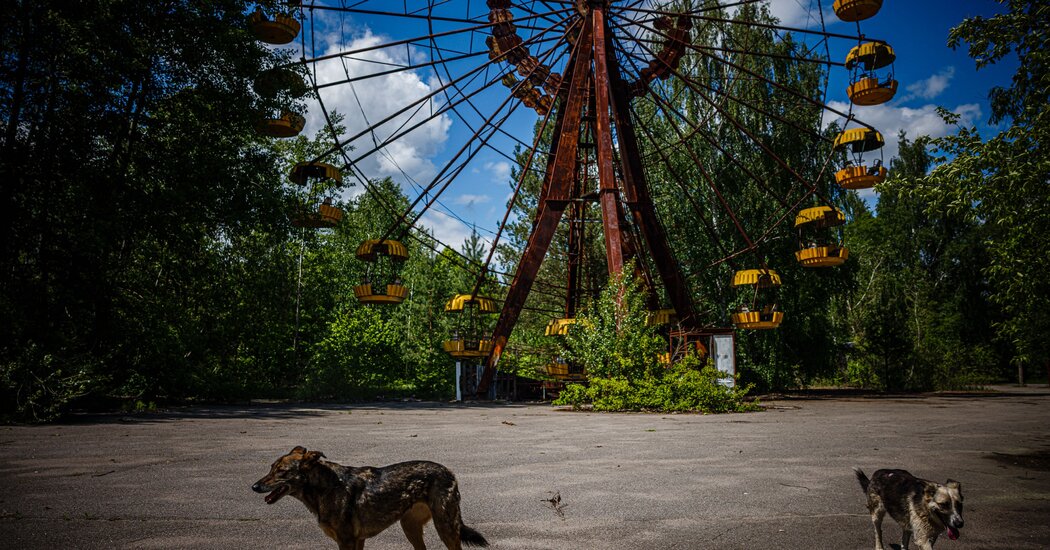

The project is a collaboration among scientists in the United States, Ukraine and Poland, as well as the Clean Futures Fund, a nonprofit based in the United States that works in Chernobyl. The nonprofit, which was established in 2016, began as an effort to provide health care and support to the power plant employees, who still work in the exclusion zone.
But the organization soon realized that Chernobyl’s canine residents needed help, too. Although the dog population boomed during the summer, it often crashed in the winter, when food became scarce. Rabies was an ongoing concern.
In 2017, the Clean Futures Fund began holding veterinary clinics for the local dogs, providing care, administering vaccines, and spaying and neutering the animals. The researchers piggybacked on these clinics to collect blood samples from 302 dogs living in different locations in and around the exclusion zone.
Nearly half of the dogs lived in the immediate vicinity of the power plant, while the other half lived in Chernobyl City, a lightly occupied residential area about nine miles away. (A small number of samples came from dogs in Slavutych, a city built for evacuated power plant workers, nearly 30 miles away.)
Although there was some overlap between the canine populations, in general, the power plant dogs were genetically distinct from the Chernobyl City dogs, the researchers found. There appeared to be little gene flow between the two groups, suggesting that they rarely interbred. (Physical security barriers around the power plant may have helped keep the dogs apart, the researchers noted.)
“I was completely surprised by the near total differentiation between the two populations, the fact that they’ve existed really in relative isolation for quite some time,” said Timothy Mousseau, a biologist at the University of South Carolina and the other senior author of the study.
24World Media does not take any responsibility of the information you see on this page. The content this page contains is from independent third-party content provider. If you have any concerns regarding the content, please free to write us here: contact@24worldmedia.com

Common Mistakes When Using Athletic Field Tarps

High-Performance Diesel Truck Upgrades You Should Consider

Warehouse Optimization Tips To Improve Performance

Fire Hazards in Daily Life: The Most Common Ignition Sources

Yellowstone’s Wolves: A Debate Over Their Role in the Park’s Ecosystem

Earth Day 2024: A Look at 3 Places Adapting Quickly to Fight Climate Change

Millions of Girls in Africa Will Miss HPV Shots After Merck Production Problem

This Lava Tube in Saudi Arabia Has Been a Human Refuge for 7,000 Years

Four Wild Ways to Save the Koala (That Just Might Work)

National Academy Asks Court to Strip Sackler Name From Endowment

Ways Industrial Copper Helps Energy Production

The Ins and Out of Industrial Conveyor Belts